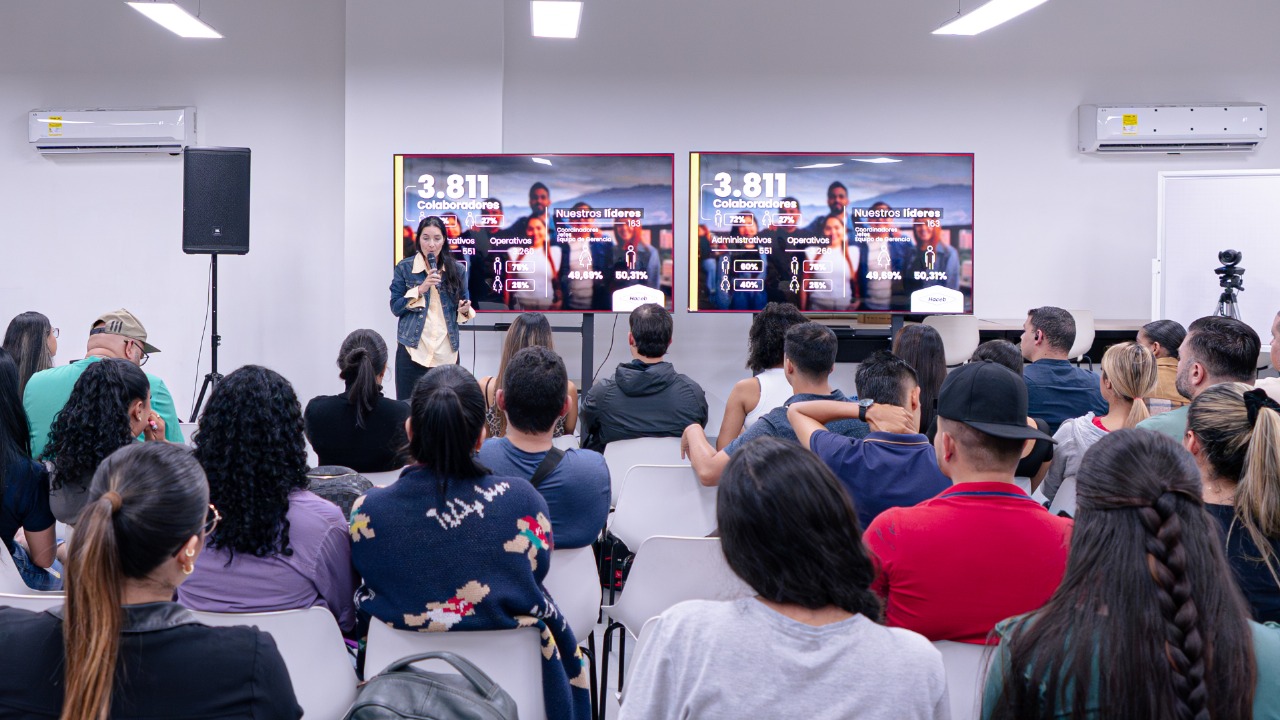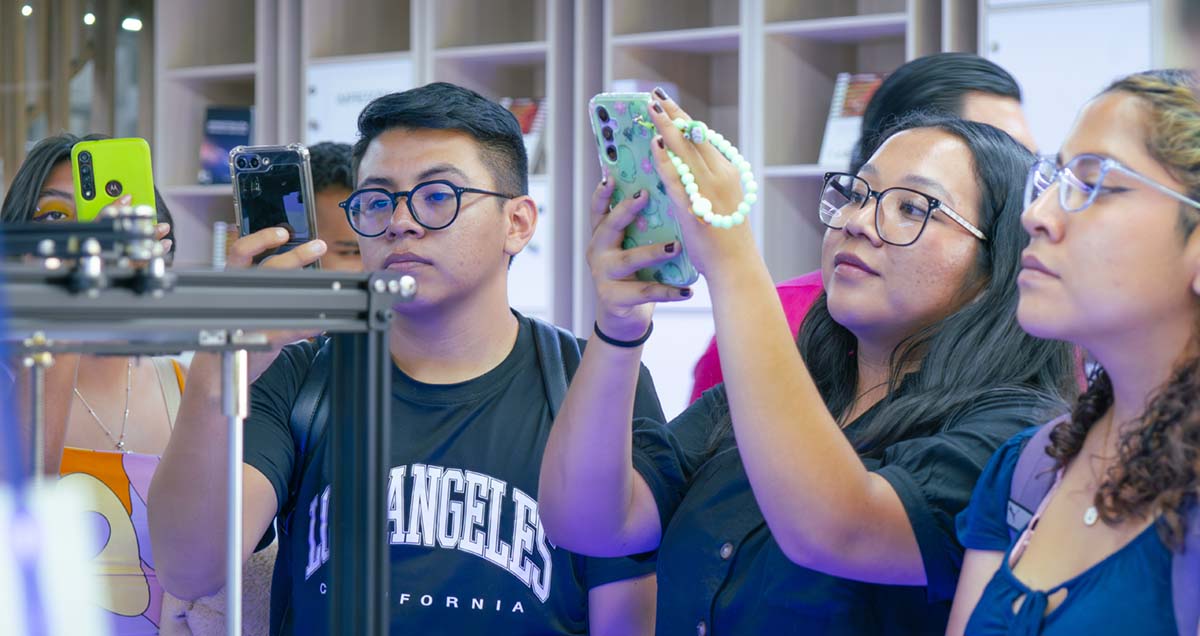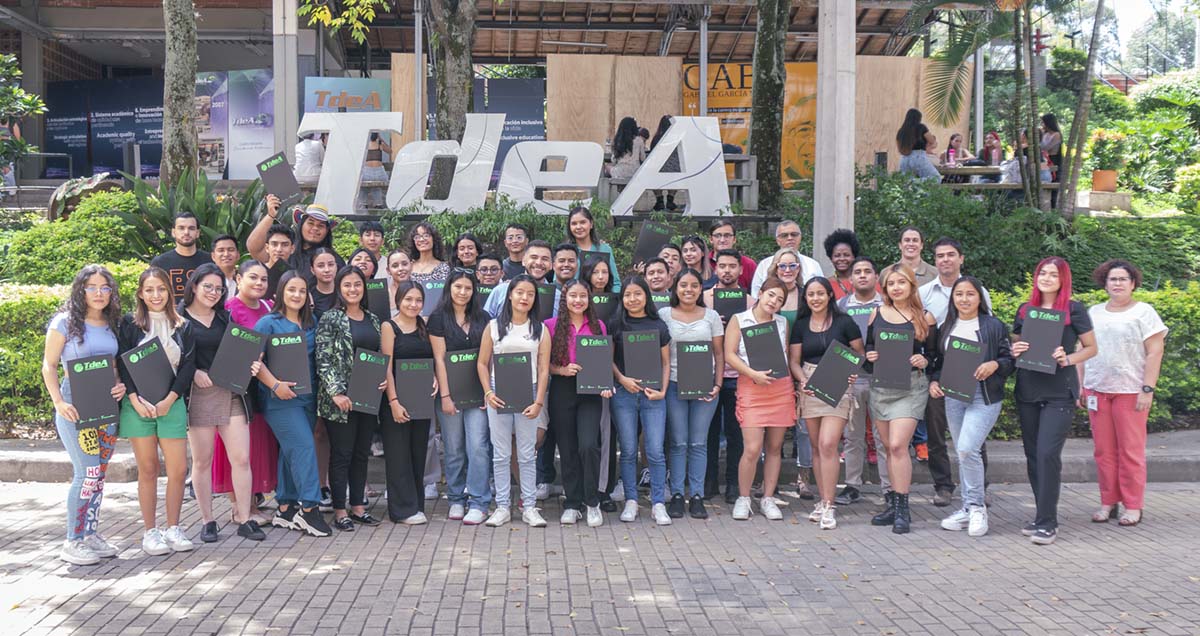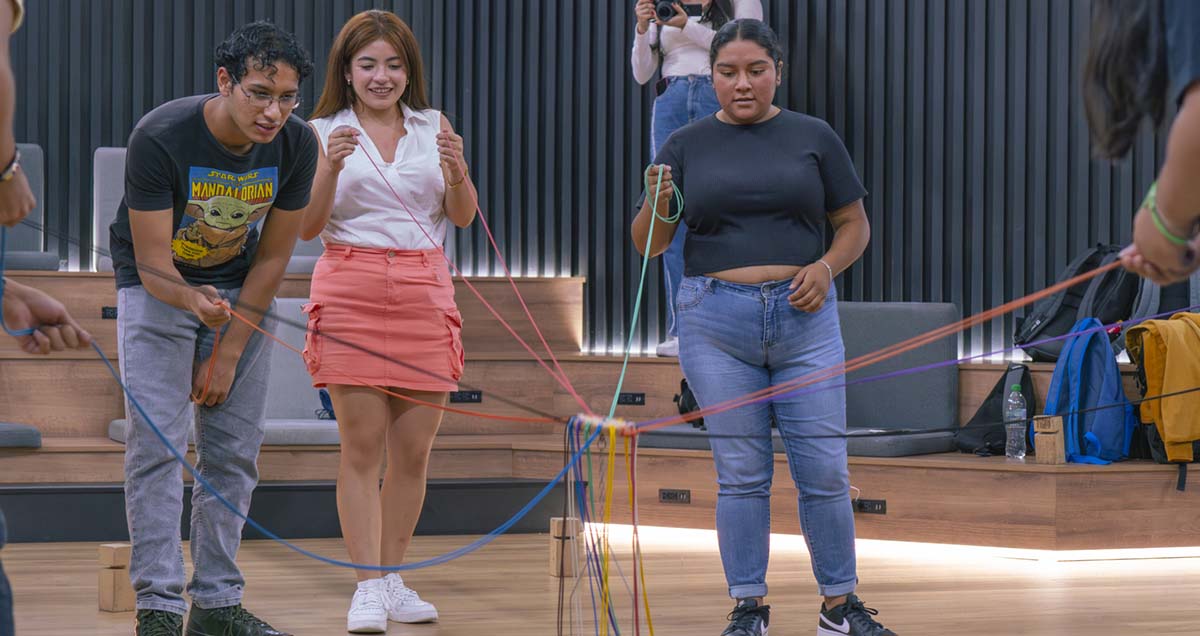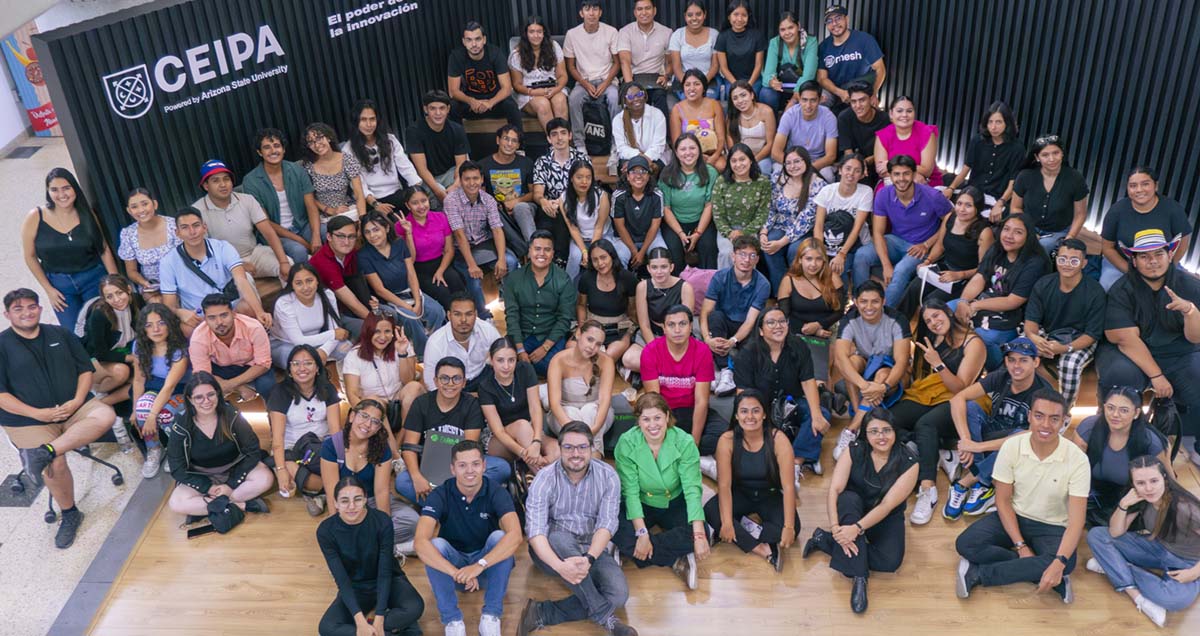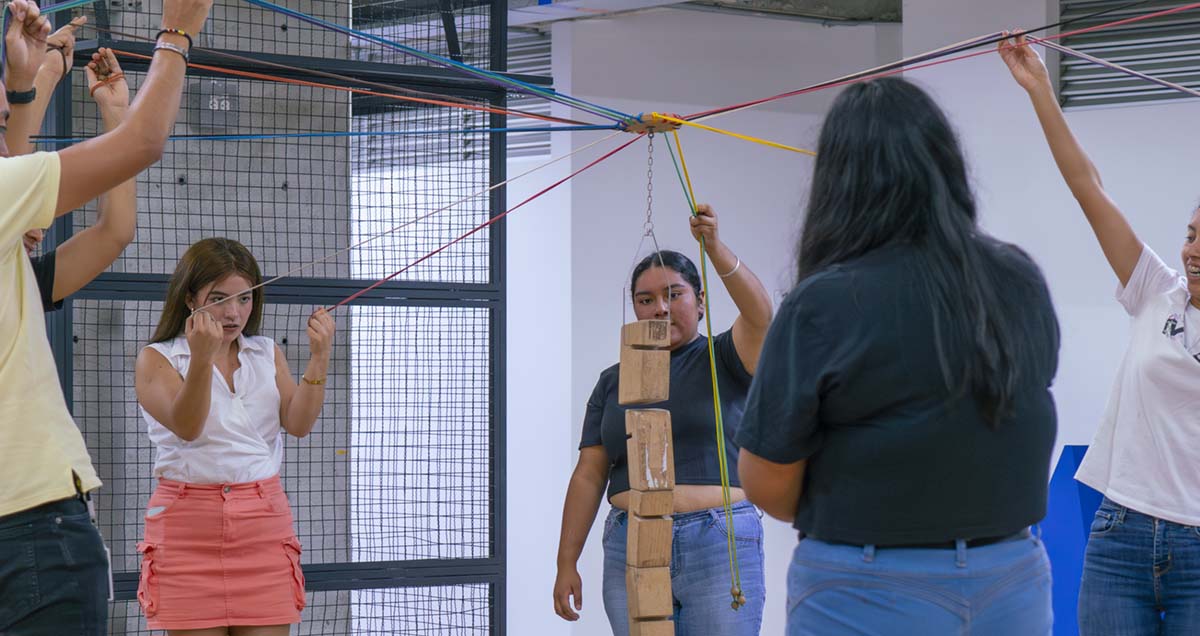Con una última sesión que conjugó conocimiento y juego fue clausurada la XXIX edición del Verano de la Investigación Científica y Tecnológica del Pacífico 2024 – DELFÍN, que inició el 21 de junio pasado en el TdeA Institución Universitaria, en articulación con el CEIPA, el ITM y el Colegio Mayor.
En esta versión participaron 44 estudiantes extranjeros y tres nacionales que eligieron al TdeA para su estancia de investigación, gracias a la proyección de nuestros investigadores y los avances que en esta materia ha sumado la Institución Universitaria, además del trabajo conjunto entre la Dirección de Internacionalización, Extensión Académica y las facultades.
“El verano de investigación DELFÍN tiene una duración de siete semanas, cada institución receptora hace una agenda académica y plan de trabajo con los estudiantes. Gracias a las alianzas y al buen relacionamiento que tenemos con otras instituciones decidimos unirnos para tener una agenda enriquecida de actividades, tanto académicas como culturales para los estudiantes”, explica Lisdairen Méndez Bermúdez, responsable de Movilidad y Proyectos Internacionales del TdeA.
Édgar Coronado es un estudiante de Licenciatura en Ciencias Forenses en la Universidad de Guadalajara que participó del campamento de verano y quien destaca que se va sorprendido con la calidad de las técnicas forenses que se estudian en el TdeA y su posible aplicación en México, su país de origen. “Realizamos pruebas en laboratorio para identificar delitos sexuales, pero también me llamó la atención el conocimiento de los docentes y su perspectiva ante las Ciencias Forenses”, resalta Coronado.
Desde México también llegó la estudiante de Medicina, Sofía Cortés, quien expresa que: "Las expectativas que tenía fueron superadas. Venía con muchas ganas de aprender sobre Ciencias Forenses para relacionarlo con un área de mi carrera que es la seguridad laboral. Tuvimos una clase en la que se abordaron todos esos aspectos e incluso llegamos a tipificar los delitos y sus responsables. Es increíble lo que nos aportan las Ciencias Forenses y el conocimiento de los profesores del TdeA", opina Sofía. Además, destaca que pudieron conocer un poco de la ciudad y su gente, mencionando que el acento paisa es uno de los más bonitos que ha escuchado.
Lisdairen dice que el curso de verano se focalizó en temas de investigación y en cómo hacerlo de acuerdo con el tema elegido, además se fomentaron las habilidades blandas como la comunicación asertiva y el trabajo en equipo y la inmersión en otras áreas como tecnología, Big Data, marketing, marca personal y actividades culturales para fomentar el trabajo interdisciplinario en los estudiantes.
La actividad de clausura, que se realizó en el campus del CEIPA, involucró uso de drones, impresoras 3D, charlas sobre innovación y administración, entre otros, que son los temas fuertes de esta institución. Jorge Andrés Vélez Muñoz, director de Internacionalización de la Fundación Universitaria CEIPA, dice que hay una premisa básica en todo este tipo de ejercicios y es la voluntad de trabajar colaborativamente, lo cual es el foco de la escuela de jóvenes investigadores.
“Trabajamos en el desarrollo de sus habilidades porque nos interesa que la experiencia que viven en Colombia trascienda al investigador y a la institución de la cual vinieron. Creo que es un ejercicio muy bonito el que hacemos todas las instituciones que estamos participando y, por supuesto, el TdeA ha tenido una participación fundamental. Desde hace mucho tiempo hemos trabajado con ustedes (el TdeA) y con el ITM no solamente para esta actividad, sino para muchas otras de proyección”, resalta Jorge Andrés Vélez.
Como logros para resaltar de esta versión del campamento de verano, Lisdairen Méndez destaca: “el más importante fue la estrategia que se creó desde la Facultad de Derecho y Ciencias Forenses con el curso Derecho Penal y Postconflicto, que tuvo un cumplimiento del 80 % de la asistencia por lo que los estudiantes recibirán una microtitulación que puede ser incluida en sus currículos”.
Concluye que: "a nivel de las cuatro instituciones recibimos un total de 78 estudiantes, con quienes nos comprometimos para brindarles una formación integral. Con ello, logramos que alrededor de 15 instituciones de México nos vean como una institución de educación superior de alta calidad que ofrece excelentes programas. Adicionalmente, estos logros benefician la movilidad y los posgrados".
![]()
The Summer Camp on Scientific and Technological Research Ends
With a last session that combined knowledge and play, the XXIX edition of the Summer of Scientific and Technological Research of the Pacific 2024 – DELFÍN, which began on June 21 at the TdeA University Institution, in coordination with CEIPA, ITM and the Colegio Mayor, was closed.
In this version, 44 foreign students and three national students participated who chose the TdeA for their research stay thanks to the projection of our researchers and the advances that the University Institution has added in this area, in addition to the joint work between the Internationalization Office, Academic Extension and the Schools within the Intitution.
"The DELFÍN research summer lasts seven weeks, each receiving institution makes an academic agenda and work plan with the students. Thanks to the alliances and the good relationship we have with other institutions, we decided to join forces to have an enriched agenda of activities, both academic and cultural for students," explains Lisdairen Méndez Bermúdez, head of Mobility and International Projects at the TdeA.
Edgar Coronado is a student of Forensic Sciences at the University of Guadalajara who participated in the summer camp and who highlights that he is surprised with the quality of the forensic techniques studied at the TdeA and their possible application in Mexico, his country of origin. "We carry out laboratory tests to identify sexual crimes, but I was also struck by the knowledge of the teachers and their perspective on Forensic Sciences," says Coronado.
Also from Mexico, the medical student, Sofía Cortés said that: "The expectations I had were exceeded. I came with a great desire to learn about Forensic Sciences to relate it to an area of my career that is occupational safety. We had a class in which all these aspects were addressed, and we even managed to classify the crimes and those responsible. It is incredible what Forensic Sciences and the knowledge of the TdeA teachers shared with us," says Sofía. In addition, she highlights that they were able to get to know a little about the city and its people, mentioning that the “Paisa” accent is one of the most beautiful she has heard.
Lisdairen says that the summer course focused on research topics and how to do it according to the chosen topic, in addition to promoting soft skills such as assertive communication and teamwork and immersion in other areas such as technology, Big Data, marketing, personal branding and cultural activities to encourage interdisciplinary work in students.
The closing activity, which was held on the CEIPA campus, involved the use of drones, 3D printers, talks on innovation and administration, among others, which are the strong themes of this institution. Jorge Andrés Vélez Muñoz, director of Internationalization of the CEIPA University Foundation, says that there is a basic premise in all these types of exercises and that is the willingness to work collaboratively, which is the focus of the school for young researchers.
"We work on the development of their skills because we are interested in the experience they live in Colombia transcending the researcher and the institution from which they came. I think it is a very nice exercise that all the institutions that are participating are doing and, of course, the TdeA has had a fundamental participation. For a long time, we have worked with you (the TdeA) and with the ITM not only for this activity, but for many other projection activities," says Jorge Andrés Vélez.
As achievements to highlight of this version of the summer camp, Lisdairen Méndez highlights: "the most important was the strategy that was created from the School of Law and Forensic Sciences with the Criminal Law and Post-Conflict course, which had a compliance of 80% of the attendance so students will receive a microdegree that can be included in their curricula".
She concludes that: "at the level of the four institutions we received a total of 78 students, with whom we committed to providing them with a comprehensive education. With this, we managed to get around 15 institutions in Mexico to see us as a high-quality higher education institution that offers excellent programs. Additionally, these achievements benefit mobility and postgraduate studies."



